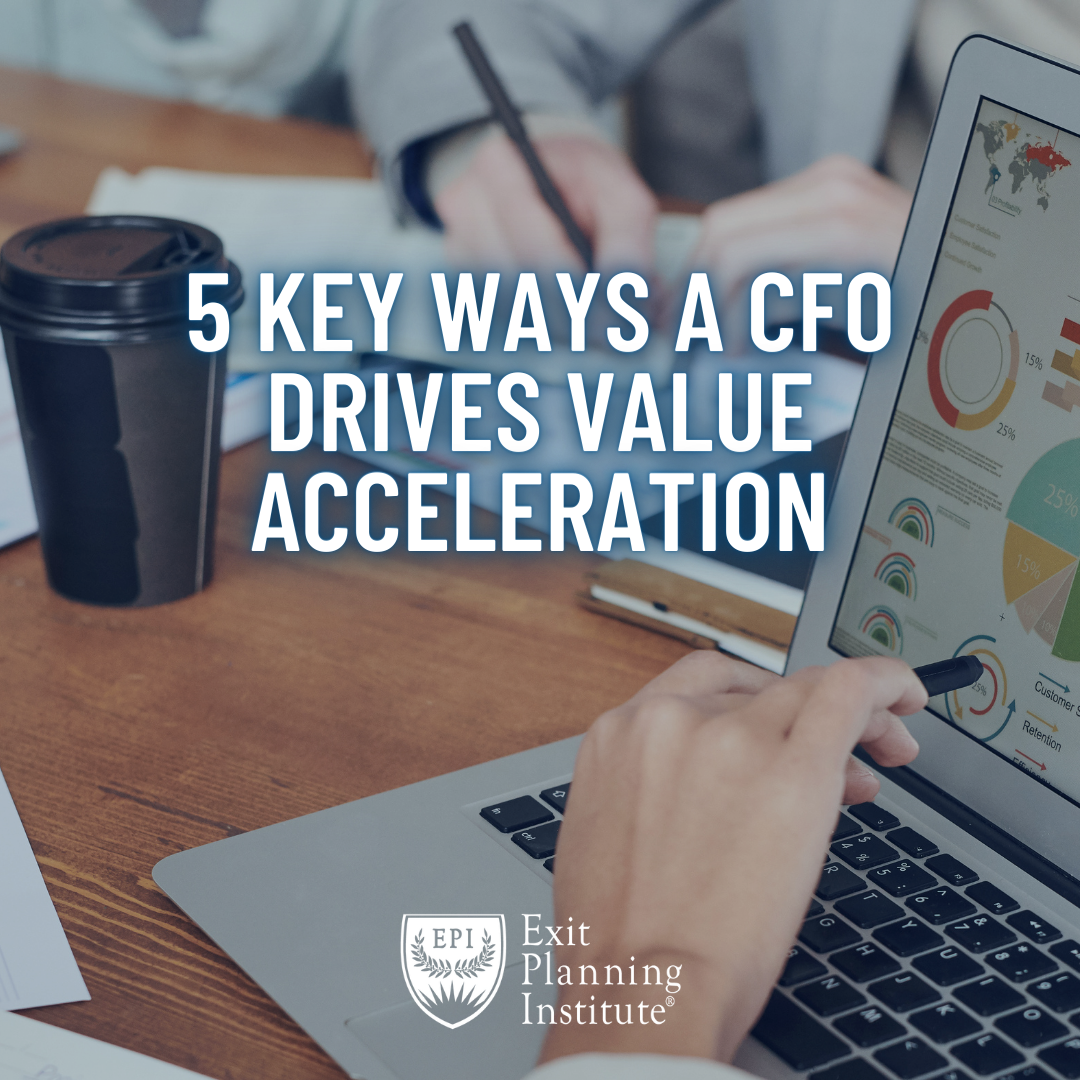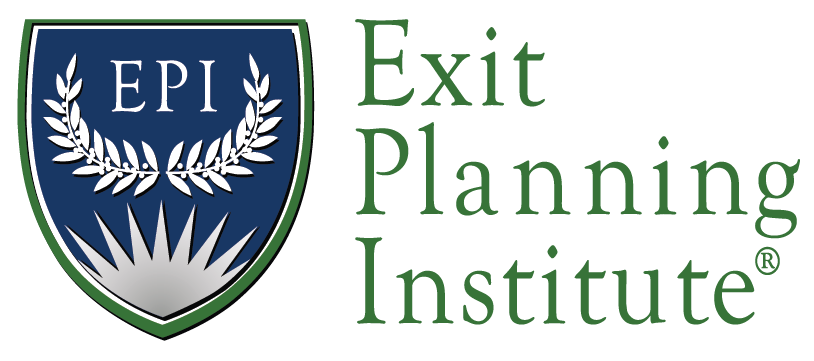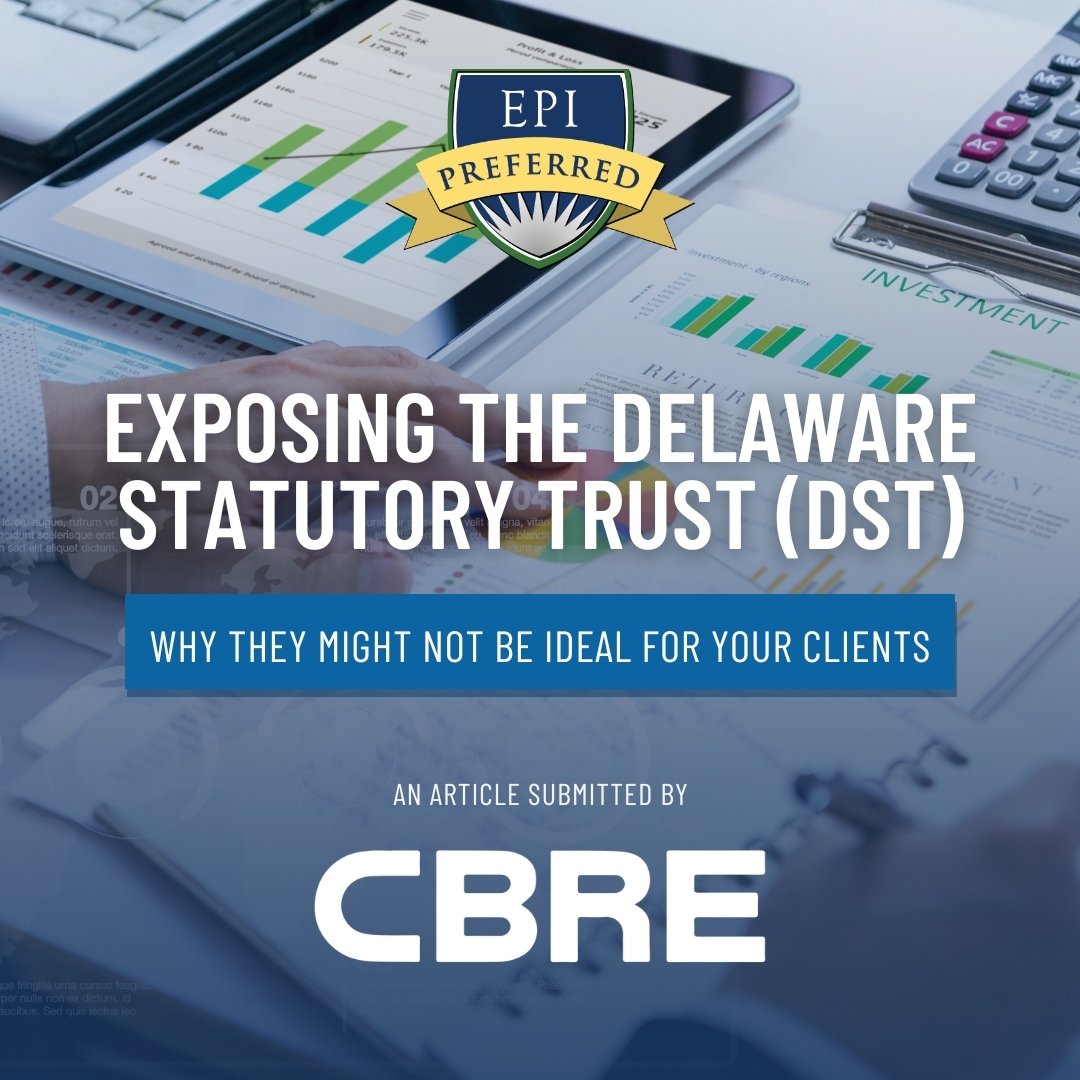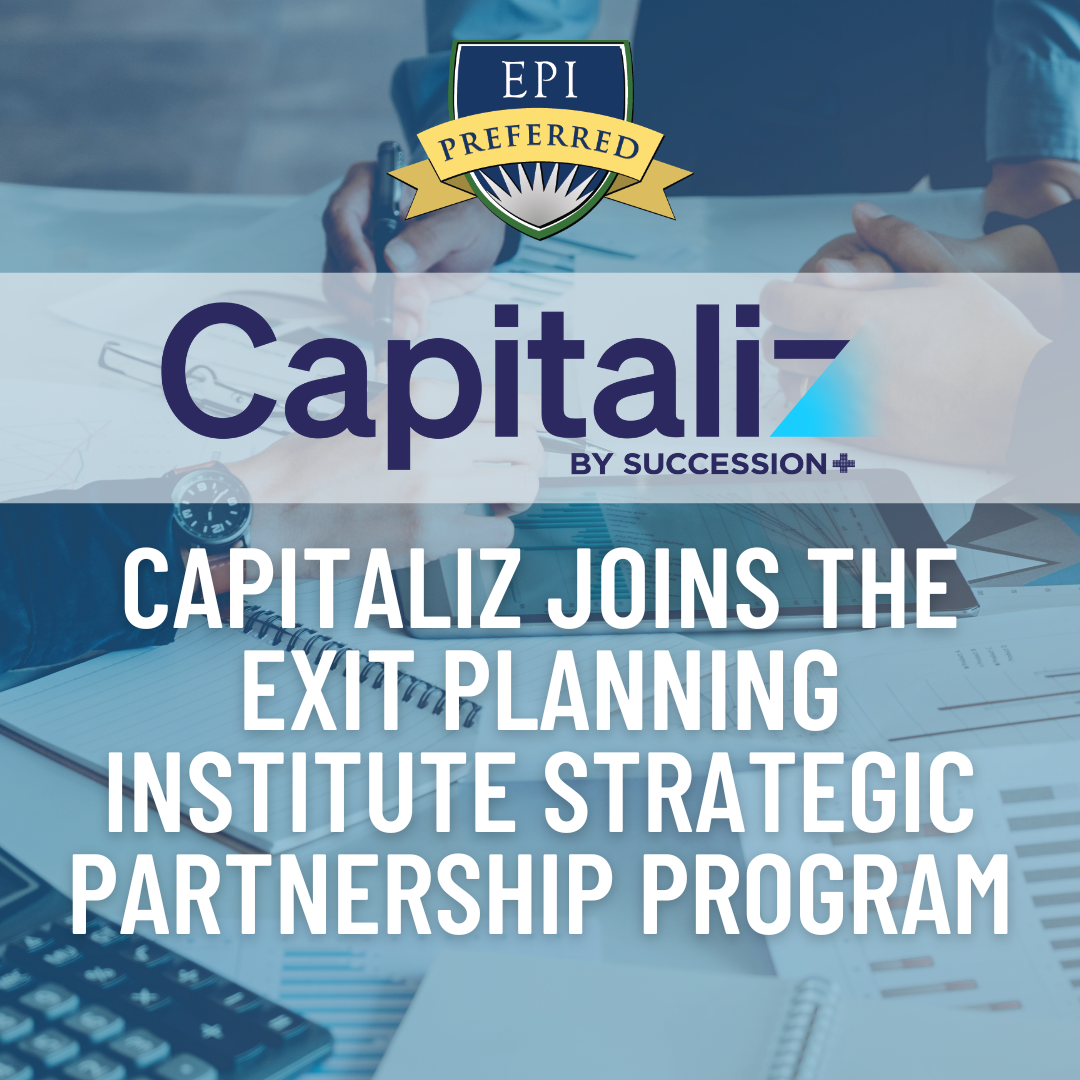
THE EXIT PLANNING BLOG
Keep up-to-date with exit planning, succession planning, industry trends, unique specialty insights, and useful content for professional advisors and business owners.
Share this
5 Key Ways a CFO Drives Value Acceleration: Demystifying the Role of the CFO in Exit Planning
by FocusCFO on November 15, 2023

You already know that a Chief Financial Officer (CFO) is a key part of the senior management team, responsible for overseeing and managing the financial aspects of the business. What you may not know, is that a CFO plays a pivotal role in ensuring a successful exit strategy for business owners. Beyond managing finances, the CFO is an integral part of the leadership team, working alongside the leadership team to drive value acceleration.
There is no role within a business that is better positioned than a CFO to help build value and ensure that the company is positioned for a successful exit.
Defining the Role of a CFO
What’s More Important Than Where You’ve Been? Where You’re Going.
A CFO is forward-focused. They proactively collaborate with business owners to chart a financial roadmap for the company, aligning the numbers with the business strategy and goals.
When that CFO is also a Certified Exit Planning Advisor® - magic happens. We call this the “CEPA Inside.” The “CEPA Inside” is perfectly positioned to keep the transformative work needed for an exit strategy front and center.
How a ‘CEPA Inside’ Drives Value Acceleration
In the Value Acceleration process, the Protect and Build Stages span the longest period, often extending over 3-7+ years. The presence of a consistent advisor helps ensure a smooth, successful exit down the road.
Most exit planning advisors aren’t in the position to dedicate this amount of time helping their clients build value and prepare for a transition. A CFO, on the other hand, is the ideal advisor for this stage. As the “CEPA Inside,” they are available to provide long-term, continuous guidance to help business owners strategically navigate these stages. CFOs provide forward-thinking financial plans, provide strategic leadership, and navigate growth. “As companies grow, their portfolio of products and services can be silently killing their value,” explains FocusCFO’s Darren Cherry, CEPA and Columbus Area President. “Sometimes it is not about doing things right, but about doing the right things.”
A CFO can ensure that businesses are focusing on the right things, driving value acceleration by:
- Focusing On De-risking: A CFO helps the business navigate the Protect stage, safeguarding the existing value of the business against the 5Ds (Death, Divorce, Disability, Disaster, Disagreement), and other operational and regulatory risks, ensuring stability and continuity and minimizing potential ‘value torpedoes’.
- Enabling Informed Decision Making: CFOs provide the insights and data necessary for well-informed strategic choices.
- Improving Margins and Cash Flow: By optimizing financial operations, a CFO can enhance profitability and ensure a healthy cash flow.
- Maintaining focus on the needed transformations: A strategic value acceleration plan means nothing without execution. Often the demands of day to day operation can crowd out the best intentions of transforming the business. The CFO has the unique position amongst the leadership team to drive a balanced approach toward addressing both the tactical demands and strategic necessities.
- Prioritizing the 4Cs: CFOs keep a focus on Human Capital, Structural Capital, Customer Capital, and Social Capital, recognizing their significance in optimizing the company’s value.
A Seamless Transition from Protect and Build to Harvest
Successful Protect and Build stages position the business for a successful exit. It ensures that the business reaches a valuation that is aligned with the owner's personal and business goals. A skilled CFO will work with the business owner early on to identify their goals. Once identified, the CFO keeps the transformative work needed to achieve those goals front and center.
When the time is right to transition from ‘Build’ to the ‘Harvest’ stage, the business is better positioned for a successful exit or transition. As the transaction advisory team is assembled, the CFO will be a key participant as they:
- Evaluate strategic options, suitors and proposed terms
- Prepare for and support the due diligence process.
- Negotiating deal terms; and
- Post-transaction transition and integration efforts
Helping Your Client Choose the Right CFO
In 2023 the average salary for a full-time CFO was over $400,000 – not in reach for many small and medium-sized businesses. But most would strongly benefit from such executive financial guidance. This is when a Fractional CFO should be strongly considered.
Not all Fractional CFOs are created equal - to effectively drive the Value Acceleration methodology, it is essential that this part-time CFO be:
- A seasoned professional with extensive ‘C-level’ experience. Not their “first rodeo”
- Firmly embedded inside as a participating member of the leadership team, vs. sitting outside as an external consultant; and
- Engaged for ‘the long haul’ – in it for the years-long process through all the stages of Value Acceleration.
A part-time embedded CFO is the only type of Fractional CFO that is suited for the tough, long climb of value acceleration as the “CEPA Inside.”
The bottom line is that if your client is focused on building their business value, you will want to consider a CFO. True Fractional CFOs (see above) provide the same level of financial expertise, but at an investment and schedule that will work for your client.
At FocusCFO, we firmly believe that an exit strategy is simply good business strategy. As such, it is an integral part of our service delivery methodology - for all clients. Our CFOs embed themselves on the leadership team, bringing dedication, C-level experience, and the benefit of the shared experience of 150+ associates.
To learn more about partnering with FocusCFO, please reach out today!
Our proven process aligns with the Exit Planning Institute’s Value Acceleration Methodology - making us a terrific partner to help your clients get their business transition ready!
Share this
- Blog (420)
- CEPA (303)
- exit planning (223)
- CEPA community (168)
- Business Owner (100)
- Exit Planning Summit (72)
- EPI Chapter Network (68)
- Content (48)
- EPI Announcement (46)
- Exit Planning Partner Network (45)
- Value Acceleration Methodology (42)
- Webinars (37)
- Marketing (30)
- 5 Stages of Value Maturity (26)
- 2024 Exit Planning Summit (25)
- Books (24)
- Exit Planning Teams (22)
- 2023 Exit Planning Summit (20)
- EPI Team (20)
- Excellence in Exit Planning Awards (19)
- women in business (19)
- family business (18)
- Leadership (17)
- Black Friday (16)
- Exit Options (16)
- Intangible Capital (16)
- CPA (15)
- EPI Academy (15)
- Chris Snider (13)
- Chapters (12)
- National Accounts (12)
- Small business (12)
- State of Owner Readiness (12)
- charitable intent (12)
- personal planning (12)
- Walking to Destiny (11)
- Financial Advisors (9)
- About us (8)
- Podcast (8)
- 5 Ds (7)
- Insiders Bash (7)
- Case Studies (6)
- Christmas (6)
- Exit Planning Content Library (6)
- Owner Roundtables (5)
- Scott Snider (5)
- Season of Deals (5)
- Value Advisors (5)
- financial planning (5)
- Awards (4)
- Five Ds (4)
- executive training (4)
- Owners Forum (3)
- forbes (3)
- EPI Thought Leadership Council (2)
- Exit & Succession (2)
- Exit Is Now Podcast (2)
- Three Legs of the Stool (2)
- Veteran (2)
- Whitepapers (2)
- Business Owners Forum (1)
- Peter Christman (1)
- author (1)
- business consultants (1)






